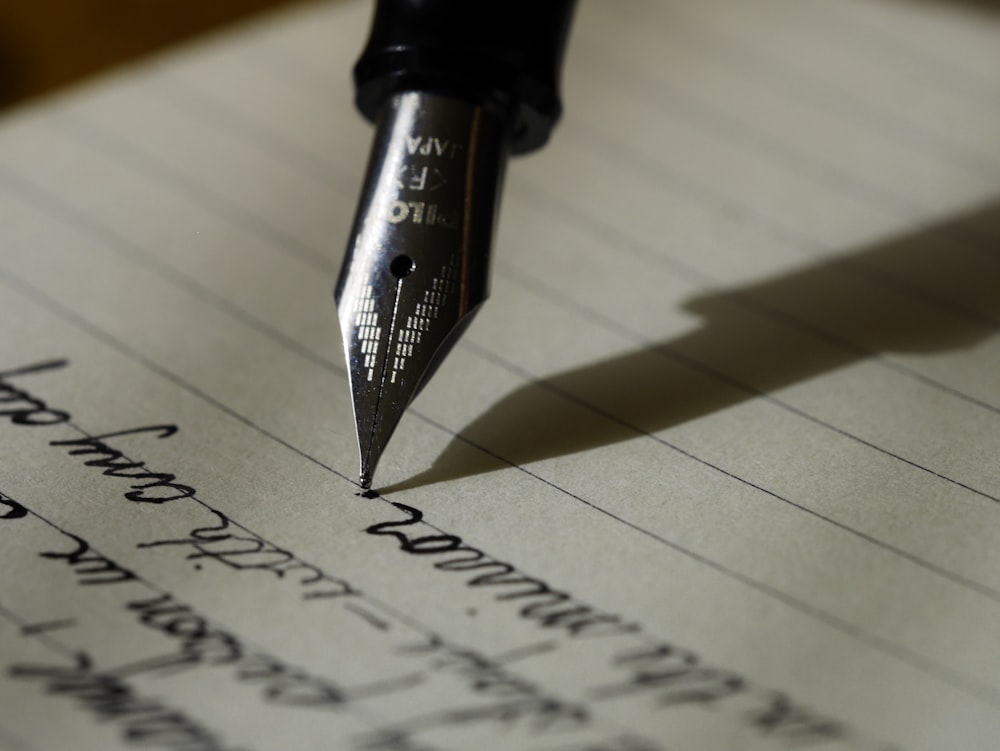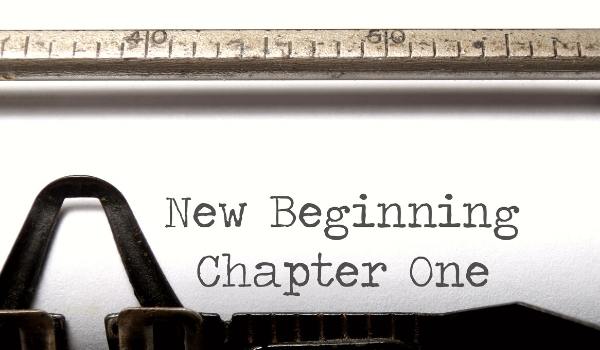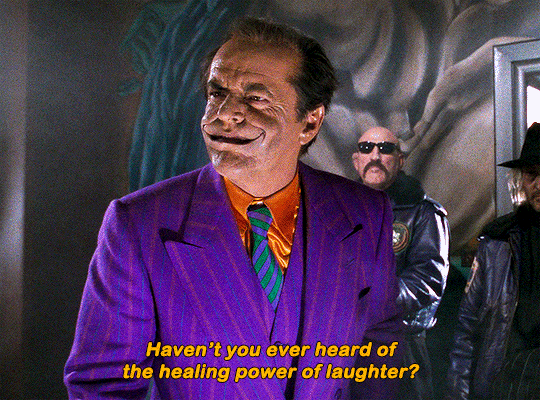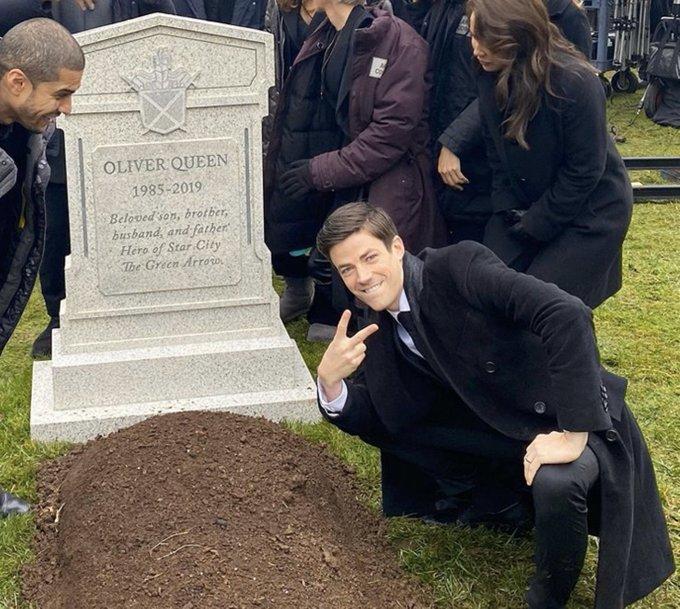Search
Archive by Date
-
▼
2023
(13)
- ► August 2023 (1)
- ► September 2023 (2)
- ► November 2023 (5)
-
►
2024
(19)
- ► January 2024 (3)
- ► February 2024 (3)
- ► March 2024 (2)
- ► April 2024 (2)
- ► August 2024 (1)
- ► September 2024 (1)
- ► October 2024 (1)
- ► November 2024 (1)
- ► December 2024 (1)
-
►
2025
(1)
- ► January 2025 (1)
Thursday, December 28, 2023
Chasing the High
Thursday, November 30, 2023
Defend and Serve (The Donuts)
Friday, November 24, 2023
Profile: Gabriel
The first impression I had upon meeting Gabriel wasn't much of an impression at all. I don’t think I noticed, upon first glance, any of the things about him that make him the walking contradiction he is. Every conversation I had with the guy broadened my comprehension of one of the strangest people I've ever been lucky enough to know.

Being first introduced to his soft voice and kind, unassuming demeanor, and then finding out he's also a bit of a badass-- firefighter, EMT, disaster response team member-- you're left trying to reconcile these diametric extremes. And even then, you would've only scratched the surface.
Soon enough you'd experience his theatrical whimsy, a love of performance never quite outgrown from childhood. In him you meet an actor and musician whose local fame makes it impossible for him to walk undisturbed in public. And beyond even that is a man with a love of the culinary arts, experimenting with gluten free baking so I (a sufferer of Celiac disease) can be included at block parties and potlucks. This is a man who plays violin, covers Sinatra, bakes cookies, rules over Munchkinland in a silly cape, and then goes to work the next morning ready to run into burning buildings.
The story of how Gabe came to be a firefighter dates back decades.
As the story goes, the tow company that his mom worked for had a police scanner in their office, and when the owner noticed how much this kid, then only eleven, loved listening to it, he gifted Gabriel with the first of many radios he would go on to own throughout his life.
Without the influence of that radio, Gabe might not have become a first responder at all. In fact, his life might have taken another turn entirely. As a teenager, he became very interested in science, and in particular meteorology."I became a weather spotter for a local TV station," he says. "I heard that the National Weather Service had a program called SKYWARN. I thought it was the coolest thing and I wanted to be part of it, except I wasn't eighteen. So the only way to get accepted into the program was if you were also a HAM radio operator."
"HAM," or amateur radio, requires a baseline knowledge of how radio systems work, and a license from the FCC. So Gabe went to a friend of his (you'll notice this phrase becoming a recurring theme in his story, as he is one of those people who seems to have friends just about everywhere) who was part of a local amateur radio club, and with some help he was able to study for and pass the exam required to become a licensed HAM operator. This new certification (yet another theme you'll soon notice-- his 20-page resume lists five pages of certifications) now under his belt, he became a SKYWARN spotter.
 |
| the first gift I ever gave him was one of these signs for his garage |
"When there were severe thunderstorms or those types of severe weather events," he says, "I'd be on the radio... telling people what was going on. I had my own office in the house."
It was through the aforementioned radio club that Gabe got his first taste of the public safety field. "I saw the med teams working and I said, that's really cool, I wanna do that," he says. From there, Gabe approached another friend of his, a firefighter from his hometown, who suggested he take a first responder class.
"The way I saw it at the time, it was very advanced. Almost like EMT-level stuff. The two-week course was very exciting. For a seventeen-year-old kid, it was a lot." After receiving his certification, he found himself doing double-duty for the marathon, working both communications and medical. "They loved it because it was one more skill they could use. If they didn't have a HAM on the med team, they'd put me on it because I could do both.
It was around this time that two things happened: First, Gabe joined a local CERT team. This put him in contact with many people from the field of emergency response, and over the years he got more and more deeply involved with his local Emergency Management Agency.
Second, he announced to his mother what he really wanted: to become a firefighter. She, however, was less than enthusiastic about the idea. It was too dangerous, she told him. He could get hurt, or killed.
"That turned into... the only real (argument) we ever had," he explains. In the end, they compromised. No firefighting, but Gabe would pursue a career in his dream field through dispatch.
"I was happy with that for a while, volunteering here and there. When I was eighteen I got my first real job doing advertisement... (but) it just wasn't fulfilling to me. I wanted to get paid to do the medical and communications stuff." In an attempt to widen his dispatch horizons, Gabe took on a dispatch position with a private ambulance company.
"Looking back it was a great experience because you had cardiac arrests, traumatic arrests, lots of trauma stuff, childbirth, CPR-- you had that going on on regular basis. I figured if I could handle (that), I can handle anything." Two years later, he found a company a bit closer to home. It was slower-paced, but it would wind up getting him involved in EMS on an even deeper level.
, |
| Like my design? Of course you do it's awesome. Get it here. |
After about three years of this, Gabe went back to his mom with a new proposition. If he was going to make enough money in this field to live on, he was going to have to become an EMT. She resisted at first, but Gabe can be very convincing. So he enrolled in a six-month EMT program and became certified. Now he was a CPR/first aid instructor, an EMT, and a dispatcher for the company, where he stayed for a total of eight years.
"When you're in private EMS as an EMT, the usual goal is to become a paramedic," he explains. "But paramedic school is expensive and it takes a long time. It's basically like going to college for a degree."
So instead of trying to go up in EMS, Gabe decided to branch outward, expanding into police and fire. He joined a a volunteer organization that provided what is called "fire ground rehabilitation" services. They would bring drinks, snacks, blankets, sometimes a mobile warming station to combat extreme cold-- anything that would help the responders on a difficult scene.
Monday, November 20, 2023
Deaf Americans and 9-1-1
It was sweet that he thought of me when he heard another police department over our region's shared police frequency, requesting the assistance of an officer fluent in American Sign Language with the arrest of a Deaf individual. Maybe the appropriate response would have been something along the lines of, hey, neat!
But I didn't think it was neat, and I still don't. In fact, it bothered me.
 |
| the official symbol for ASL interpreters, based on the sign for "interpreting" |
"Interesting," he sent back. "That's good to know."
But I wasn't done. "Just think about it," I continued. "If their Miranda rights aren’t read, correctly and in full, the entire arrest is bonk. How much worse do you think it could be if an un-licensed cop plays interpreter and screws something up? Even if they don’t, there’s no accountability. It’s a really risky game to play, as a department. You don't fuck with the ADA unless you want a serious lawsuit."
In 1990, then-President George H. W. Bush signed the ADA into law. The Americans with Disabilities Act was meant to protect individuals with a wide array of disabilities, a category that includes the deaf and hard-of-hearing.
 |
| President George H. W. Bush signing the ADA, July 26, 1990 |
“The ADA broadly protects the rights of individuals with disabilities in employment, access to State and local government services, places of public accommodation, transportation, and other important areas of American life. The ADA also requires newly designed and constructed or altered State and local government facilities, public accommodations, and commercial facilities to be readily accessible to and usable by individuals with disabilities."
Americans with Disabilities Act: Title II Regulations (.pdf)
There are a few different ways that dispatchers are expected to comply with ADA expectations. The first method is using TTY technology, with which our 9-1-1 systems are required to comply. There's also text-to-911 services, some of which work better than others, and silent call procedures, in which a party unable to unwilling to speak aloud can still communicate with dispatchers.
But even after the call, there are a thousand different ways that a deaf person can be failed by emergency responders. From police interactions to neglect in the courtroom, the issue is broad and systemic, and fixing it is going to require more than just attention and awareness.
For a d/Deaf or hard-of-hearing person, the right to an interpreter is probably the most important right protected by the ADA. After all, the primary barrier of deafness is communication. How are you supposed to know what you're in trouble for when you're arrested, or follow along in your own court case, or tell the police what happened if you're a victim of a crime?
The ADA is supposed to protect against these sorts of injustices, but unfortunately, as demonstrated by the fact that we heard one of our own local PDs requesting an officer with ASL knowledge over the radio, the follow-through just isn't always there. The resources allocated to teaching law enforcement how to deal with individuals with disabilities are severely lacking. As Professor of Sociology Alex Vitale of Brooklyn College states, “Police compliance with ADA provisions is pretty poor across the board. It’s clearly not a priority for a lot of police leaders."
In some places, in spite of the ADA, violations happen all the time. In 2012, St. Louis police tasered a deaf man on the side of the road, only for it to turn out he was having a diabetic emergency. Then in 2014, an elderly deaf man was dragged from his car and beaten by officers, before being charged with resisting an arrest by the same department that cleared the officers of all wrongdoing. A month later, a deaf man had been similarly beaten, tased, and choked out after being mistaken for a burglar. The officers had seen him signing, trying to communicate with them, and believed the movements to be signs of aggression, and had responded in kind.
This problem has been addressed by independent journals, such as The American Civil Liberties Union and The Atlantic, as well as in a humorous episode of Full Frontal with Samantha Bee, guest-starring Deaf activist and entertainer Nyle DiMarco.
However, there hasn't been much coverage of D/deaf interactions with law enforcement in the mainstream media, with the exception of those reports where things do get out of hand. Like with many issues of civil rights, pleas for systemic change continue to go unaddressed, or are only addressed after tragedy occurs. More often than not, too, these are underwhelming measures that smack of PR damage control, and are unlikely to maintain traction after the initial outcry dies down.
There is a reason the law requires anyone who is serving as an interpreter in any official capacity to be certified. Without those protections, children may be coerced into interpreting for parents, which opens up all sorts of issues, both for the child and for the efficacy of services being provided.
Many of the same issues arise when unqualified third parties are asked or compelled to serve in the same way. Interpreters are held accountable to standards of care, much in the same as their doctors and judges are. They are trained in the language's nuance, in skills for effectively communicating complex ideas to and for their Deaf clients. Furthermore, there is a code of ethics, compliance to which can help ensure privacy, regulate appropriate intervention, and serve as a framework for professionalism.
However, as a hearing person with no experience trying to run a law enforcement agency, I am far from qualified to decide what is and is not an acceptable risk. I don't know what was going on at that department. I don't know what kind of attempts may have been made to locate a certified interpreter before they put out that request over the radio. What I do know is that it's still unacceptable.
Unfortunately, I don't have the answer. I'm just one dispatcher, in one small-town PSAP, with one set of ideals that I wish I could see reflected in the big wide world outside. But I can write, and so I do. I write to inform, to entertain, to commiserate with you, dear reader, dear stranger. I write in hopes that someday, somebody with more power than me understands what needs to be done, and sees it through.
In the meantime, we can write. We can write to our representatives, calling them to action. We can write to police departments out of which atrocities are born, and demand justice for those wronged. We can write, and we can speak up. We can learn sign language and support organizations that support our local disabled communities. We can listen to the voices of those who experience the world a little differently to us, and maybe, just maybe, we'll be part of the force of change that makes the world a better place for all.
For Americans who want to make a difference, to find and contact your state representative, visit the U. S. House of Representatives website and search by your state and district. The same can be done for state senators here. The National Association of the Deaf has a great letter template found here that you can use as well.
If you are able to and wish to donate financially to local or global Deaf activism groups, the bottom of this Wikipedia page contains a list of organizations from all over the world.
For works cited, see here.
Monday, November 13, 2023
Adjustments
Training began in earnest on November 13th. I was scheduled for a few rotations of morning shifts, 0700 to 1500. Then I'd do a few rotations of the eves, 1500 to 2300, and then my last two rotations would be overnights, 2300 to 0700 the next morning. If all went according to schedule, I'd be signed off on December 16th.
The purpose of staggering them like this, Kara told me, is to help ease the transition to night shifts. For her, adjusting to the overnights back when she was new had been a struggle. Taking her advice, I began to push myself to stay up later and later after evening shifts, forcing my body to adjust to being awake all night and sleeping during the day.
At first, it was hard. With everything closed and my roommate asleep, I spent the first two or three nights after getting off at 2300 (11 PM, to the uninitiated) creeping around the house as silently as I could, reading books and drinking coffee until the early hours of the morning, when I could fight the exhaustion no longer. Then I'd drift off into a fitful, restless sleep until the sunshine beckoned me out of bed again.
Self-doubt crept back in. I was starting to wonder if I was fighting a losing battle, if maybe Reg hadn't known all along the infallible truth: that I wasn't cut out to be a dispatcher. But the others, Kara and the supervisor and Dean-- the sometimes-cranky but always supportive third full-timer-- never lost hope in me. So I made a game plan.
First, I attacked the issue of the bright daylight hours robbing me of any good sleep. I bought blackout curtains and a sleep mask, added a pair of expensive soundproof headphones to my Amazon wish list (promising myself I'd buy them with my first overtime check), and a few days' supply of melatonin. Then, I found the nearest 24/7 gym. By the time I staggered in after my evening shift, the gym would be nearly empty. I'd stay from around midnight until the first few early-birds began to straggle in, between 4:30 and 5:30 AM.
Thanks to Gabe, I had a scanner already programmed with the police and fire radios. He'd also introduced me to an app that gave me access to many of these channels live on my phone. I focused on the different voices I heard, learning to recognize the ones I'd be communicating with most at work. The "radio-ear" I'd started developing at Reg, I now fine-tuned. In an emergency, there wasn't time to be constantly asking, "What did they just say?"
I was ready. One month, six work rotations, and I was ready. In the end, Gabe was right. All I'd needed was the right kind of support. When December 16th finally rolled around, I went in with full confidence that I could do it, that I'd been adequately trained for any situation that might arise.
There was only one concern: overnights were slow, and if, for my last shift, the dispatch supervisor didn't see me handling any actual emergencies, he might decide he couldn't sign me off tonight. The last three overnights had seen a combined total of one 9-1-1 call, which turned out to be accidental, and a handful of traffic stops.
But fate must have been on my side, if not on the side of the elderly woman who called 9-1-1 to request an ambulance for her husband. The supervisor, halfway through my processing of the call, actually said, "I could walk out right now and go home."
That was it. On the morning of December 16th, I walked out with the stamp of approval of the dispatch supervisor, and two days off to enjoy before I started working the desk alone.
"I've been holding onto it since Regional," he told me, his smile so full of pride that I couldn't help grin back. "That's how sure I was that you'd be successful, if not there then somewhere else. Somewhere that supported you."
"They surely do here," I admitted, hugging him a bit tighter. "And I couldn't be more grateful to them, or to you."
Wednesday, November 1, 2023
New PSAP, New Me
Dizzy,It was great chatting with you today to review your resume and cover letter, and to learn more about you and the qualifications you would bring to our department. The interview panel met after you left, and we were all equally impressed with the caliber of applicant that you are, and believe that you will be a valuable addition to our team.For this reason, I would like to move forward with you in the hiring process. We are excited about the prospect of having you join our department and believe that your contributions will make a significant impact on our agency’s success and mission. We look forward to your positive response and the opportunity to work together.
Friday, October 27, 2023
The Roof is on Fire (Part 3: Too Soon?)
…and then we were both howling. It's probably sheer luck that we didn't crash on the way home, because the rest of the drive was spent in hysterics, taking turns volleying fire-related jokes:
"Did you hear about the fire in the shoe factory? Many soles were lost."
"Why do ducks have flat feet? To stomp out forest fires. Why do elephants have flat feet? To stomp out flaming ducks!"
"My grandfather always said, “Fight fire with fire.” He was a great man, but a terrible firefighter."
…while the stereo played that old familiar song, and we laughed at the sheer absurdity of it all. "The roof. The roof. The roof is on fire..."
And that's when I knew I'd be okay. (Part 1: Backstory)
What I would've given to be there the night that Gilbert Gottfried gave what, to this day, remains one of the most iconic performances at a Hollywood Roast. It was the roast of Hugh Heffner, which means it was bound to be lascivious. Pushing the boundaries of what is acceptable is part of the tradition of the Hollywood Roast, and Gottfried himself has a long and rather sordid track record of doing just that.
“I have to catch a flight to California," Gottfried tells the audience. "But I can’t get a direct flight. They said they have to stop at the Empire State Building first.”
This is a joke that, today, might have seemed pretty tame compared to a lot of the 9/11 jokes that have been made in the past twenty-odd years. But it elicited groans of disgust and furtive boos from the audience. Gottfried-- already famous (infamous?) for a sense of humor that some might credit to his gumption, while others will call inappropriate and insensitive-- became one of the most, if not the single most controversial and iconic public displays of gallows humor ever uttered before a crowd.
The phrase, "Too soon!" could be heard among the boos of the audience that night. Two decades later, Vice released a documentary by that name, raising the question: at what point are we allowed to laugh after something terrible happens?
Apparently, two weeks was enough time: enough to laugh, if not to at the tragedy then at least in the midst of it. As the news continued to rehash the attacks over and over, the host of that year's already controversial Roast launched into another joke, and suddenly an auditorium full of people went absolutely hysterical with laughter.
"I'd lost an audience bigger than anybody has ever lost an audience," Gottfried explains later. "People were booing and hissing... oh my God. I was floating through outer space." So, he thought, "why not go to an even lower level of hell?"
"The Aristocrats" is one of the dirtiest jokes of all time. Gottfried himself didn't write it, and he certainly wasn't the first to tell some version of it. The routine has been around in comedy circles for years. Every comedian who uses it has a unique retelling, taking the same generally dirty premise and adding in whatever other repugnant details seem right in the moment. Gottfried's version was no exception, and it may have become the most famous, in part, for some of the repugnant details he includes.
You might think that an audience sensitive to the airplane-hijacking reference wouldn't have responded much better to this depraved ditty, but what happened next was a sensation in the world of comedy.
“The laugh was so deep and cathartic that people were coughing up pieces of lung,” recalls reporter Frank DiGiacomo. “It was amazing... he had united everybody in that one moment."
Gottfried himself was even a bit shocked at the overwhelming response. "The audience was going wild (with) the biggest laughs I ever heard."
What rang out from that auditorium was the sort of laughter that shook stadiums, changed lives, saved teetering comedy careers. World-renowned celebrities dressed to the nines in elegance and class were falling out of their seats, crumpling designer suits as they clutched their sides. Faces well-known to glamour magazines turned red under layers of concealer and cream, contorting as the uncontrollable need to laugh overtook them all. Tears stained glittering gowns as the unthinkable happened, as the people in that room were released, for that one shining moment, from the weight of tragedy, the shackles of couth, the hollowness left by weeks of endless mourning.
It was the sort of laughter that healed.
But why shouldn't they be?
I think it's a shame that funerals are considered universally inappropriate places for laughter. That isn't to say that churches full of grieving families dressed in black ought to be treated as basement improv clubs or the cemetery as a stand-up audition. No doubt many of those burying their loved ones just won't be in the mood for glib.
But when I think of my own funeral, of the time when it will be my loved ones gathering because I'm the guy in the box, I like to imagine a room filled with laughter. I want to know that they're remembering me as I am now, laughing and playing and pretending death isn't just one missed turn signal or grim-faced doctor's proclamation away from us all.
The trauma of losing my house in a fire pales considerably next to stories of rescue workers and those trapped within the rubble on September 11th, 2001. Which is why I do not intend to compare the two, or hold others to my own timeline of recovery. My intention is never to criticize those who prefer to mourn in more traditional ways, but rather to pose the question: Is there such thing as a universal standard of "too soon"?
When I told a firefighter from one of my towns that I had lost my cat in a fire, he was sympathetic.
"I'm so sorry to hear that," he told me. "I'm sorry you had to lose a family member in such a horrible way."
I shrugged. "Sure, I guess I did lose a family member, and that's pretty sad." Then my grin turned sideways. "But I got a pretty cool frisbee out of it."
 |
| Apparently I'm not the only writer comedically capitalizing off the loss of a pet. |
In between approving guffaws, he slapped my shoulder amiably and said, "Oh, you're going to fit in just fine here."
By "here," I know he didn't mean that town's fire department. What he had meant to express was his I'd adjust nicely into the public safety field, because I had demonstrated competence with the national language of first responders: gallows humor.
Discretion is key when utilizing humor as a coping mechanism. Part of discretion is knowing how long to wait before laughing at something. Two weeks after 9/11, there were still funerals going on. Firefighters and officers who had braved the rubble of the city's once proud monument to commerce were still reeling from the catastrophic events that threatened the American way of life. Family members were still inconsolable, and many of the children of the fallen had not yet fully realized that Mom or Dad really wouldn't be coming home this time. So that, perhaps, was too soon.
But twenty years later, jokes about 9/11 can be funny, as Jimmy Carr proved in 2022 with this absolute knock-out. Legend has it Carr tested the joke on Davidson himself, and Pete gave his go-ahead before it was told in front of the Hollywood Roast crowd. In this way, he proved that a joke, far darker than Gottfried but told twenty years later, can be laughed at without guilt.
Knowing the rules is important. You can't laugh at someone else's trauma until they laugh at it first, and even then it's often wise to leave the joke-making to them. You also can't be insensitive to the fact that not everybody is comfortable with gallows humor. Knowing your audience, respecting the healing timeline, engaging in a way that will draw people together rather than drive them apart-- these are the skills comedians both professional and amateur must develop before attempting to get the tears flowing.
Though risky, dark humor can be incredibly healing. Cliché as it sounds, shared laughter brings people together. Memes about unpleasant mundane experiences go viral because we see ourselves as well as each other in them. The fact that our experiences are universal means that we're all in this together, and that means that no matter what happens, none of us are ever alone.
Pain is the most reliable constant in all of human history, a "common thread" tying together the entire human race. We all suffer, so why shouldn't our suffering at least mean something? At least when we also choose to share in the struggles of life, we can end the day by laughing together, too.

















